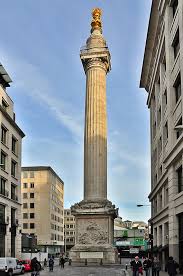monument
英 ['mɒnjʊm(ə)nt]
美 ['mɑnjumənt]
- n. 纪念碑;历史遗迹;不朽的作品
- vt. 为…树碑
CET4 TEM4 考 研 TOEFL CET6
1、monu- ( mon-: remind, warn ) + -ment.
2、literally "something that reminds".
monument 纪念碑来自拉丁语monere,警告,提醒,记忆,词源同admonish,monitor,mind.-ment,名词后缀。引申词义纪念碑。
- monument
- monument: see monster
- monument (n.)
- late 13c., "a sepulchre," from Old French monument "grave, tomb, monument," and directly from Latin monumentum "a monument, memorial structure, statue; votive offering; tomb; memorial record," literally "something that reminds," from monere "to remind, warn" (see monitor (n.)). Sense of "structure or edifice to commemorate a notable person, action, or event" first attested c. 1600.
- 1. As Wren's epitaph famously declares, the cathedral itself is his monument.
- 众所周知,雷恩的墓志铭中写道,大教堂本身就是他的纪念碑。
来自柯林斯例句
- 2. By his international achievements he leaves a fitting monument to his beliefs.
- 他在国际上的成就为其信念作出了最好的注解。
来自柯林斯例句
- 3. The monument predates the arrival of the druids in Britain.
- 这一遗迹在德鲁伊特来到不列颠前就已存在。
来自柯林斯例句
- 4. The whole house is a monument to her craftsmanship.
- 那整座房子是她技艺的一座丰碑。
来自《权威词典》
- 5. A monument to him was erected in St Paul's Cathedral.
- 在圣保罗大教堂为他修了一座纪念碑。
来自《权威词典》
[ monument 造句 ]
